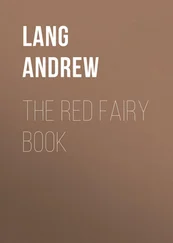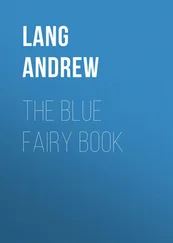Andrew Lang - The Red True Story Book
Здесь есть возможность читать онлайн «Andrew Lang - The Red True Story Book» — ознакомительный отрывок электронной книги совершенно бесплатно, а после прочтения отрывка купить полную версию. В некоторых случаях можно слушать аудио, скачать через торрент в формате fb2 и присутствует краткое содержание. Жанр: foreign_antique, foreign_prose, на английском языке. Описание произведения, (предисловие) а так же отзывы посетителей доступны на портале библиотеки ЛибКат.
- Название:The Red True Story Book
- Автор:
- Жанр:
- Год:неизвестен
- ISBN:нет данных
- Рейтинг книги:5 / 5. Голосов: 1
-
Избранное:Добавить в избранное
- Отзывы:
-
Ваша оценка:
- 100
- 1
- 2
- 3
- 4
- 5
The Red True Story Book: краткое содержание, описание и аннотация
Предлагаем к чтению аннотацию, описание, краткое содержание или предисловие (зависит от того, что написал сам автор книги «The Red True Story Book»). Если вы не нашли необходимую информацию о книге — напишите в комментариях, мы постараемся отыскать её.
The Red True Story Book — читать онлайн ознакомительный отрывок
Ниже представлен текст книги, разбитый по страницам. Система сохранения места последней прочитанной страницы, позволяет с удобством читать онлайн бесплатно книгу «The Red True Story Book», без необходимости каждый раз заново искать на чём Вы остановились. Поставьте закладку, и сможете в любой момент перейти на страницу, на которой закончили чтение.
Интервал:
Закладка:
II
A PAGE OF HISTORY
AS you know, Edward III. had made an unjust claim to the French crown, and, with the Black Prince, had supported it by the victories of Creçy and Poictiers. But Edward died, and the Black Prince died, and his son, Richard II., was the friend of France, and married a French princess. Richard, too, was done to death, but Henry IV., who succeeded him, had so much work on his hands in England that he left France alone. Yet France was wretched, because when the wise Charles V. died in 1380, he left two children, Charles the Dauphin, and his brother, Louis of Orleans. They were only little boys, and the Dauphin became weak-minded; moreover, they were both in the hands of their uncles. The best of these relations, Philip, Duke of Burgundy, died in 1404. His son, John the Fearless, Duke of Burgundy, was the enemy of his own cousin, Louis of Orleans, brother of the Dauphin Charles, who was now king, under the title of Charles VI. John the Fearless had Louis of Orleans murdered, yet Paris, the capital of France, was on the side of the murderer. He was opposed by the Count of Armagnac. Now, the two parties of Armagnac and Burgundy divided France; the Armagnacs professing to be on the side of Charles the Dauphin. They robbed, burned, and murdered on all sides. Meanwhile, in England, Henry V. had succeeded to his father, and the weakness of France gave him a chance to assert his unjust claim to its throne. He defeated the French at Agincourt in 1415, he carried the Duke of Orleans a prisoner to London, he took Rouen, and overran Normandy. The French now attempted to make peace among themselves. The Duke of Burgundy had the mad Charles VI. in his power. The Dauphin was with the opposite faction of Armagnac. But, if the Dauphin and the Duke of Burgundy became friends, the Armagnacs would lose all their importance. The power would be with the Duke of Burgundy. The Armagnacs, therefore, treacherously murdered the duke, in the name of the Dauphin, at a meeting on the Bridge of Montereau (1419). The son of the duke, Philip the Good, now became Duke of Burgundy, and was determined to revenge his murdered father. He therefore made friends with Henry V. and the English. The English being now so strong in the Burgundian alliance, their terms were accepted in the Peace of Troyes (1420). The Dauphin was to be shut out from succeeding to the French crown, and was called a Pretender. Henry V. married the Dauphin's sister Catherine, and when the mad Charles VI. died, Henry and Catherine were to be King and Queen of England and France. Meantime, Henry V. was to punish the Dauphin and the Armagnacs. But Henry V. died first, and, soon after, the mad Charles died. Who, then, was to be King of France? The Armagnacs held for the Dauphin, the rightful heir. The English, of course, and the Burgundians, were for Henry VI., a baby of ten months old. He, like other princes, had uncles, one of them, the Duke of Gloucester, managed affairs in England; another, the Duke of Bedford, the Regent, was to keep down France. The English possessed Paris and the North; the Dauphin retained the Centre of France, and much of the South, holding his court at Bourges. It is needless to say that the uncles of the baby Henry VI., the Dukes of Gloucester and Bedford, were soon on bad terms, and their disputes made matters easier for the Dauphin. He lost two great battles, however, Crevant and Verneuil, where his Scottish allies were cut to pieces. The hearts of good Frenchmen were with him, but he was indolent, selfish, good-humoured, and governed by a fat, foolish favourite, La Tremouille. The Duke of Bedford now succeeded in patching up the quarrels among the English, and then it was determined (but not by Bedford's advice) to cross the Loire, to invade Southern France, to crush the Dauphin, and to conquer the whole country. But, before he could do all this, Bedford had to take the strong city of Orleans, on the Loire. And against the walls of Orleans the tide of English victory was broken, for there the flag of England went down before the peasant girl who had danced below the Fairy Tree of Domremy, before Joan the Maiden.
III
THE CHILDHOOD OF JOAN THE MAIDEN
THE English were besieging Orleans; Joan the Maid drove them from its walls. How did it happen that a girl of seventeen, who could neither read nor write, became the greatest general on the side of France? How did a woman defeat the hardy English soldiers who were used to chase the French before them like sheep?
We must say that France could only be saved by a miracle, and by a miracle she was saved. This is a mystery; we cannot understand it. Joan the Maiden was not as other men and women are. But, as a little girl, she was a child among children, though better, kinder, stronger than the rest, and, poor herself, she was always good and helpful to those who were poorer still.
Joan's parents were not indigent; they had lands and cattle, and a little money laid by in case of need. Her father was, at one time, doyen , or head-man, of Domremy. Their house was hard by the church, and was in the part of the hamlet where the people were better off, and had more freedom and privileges than many of their neighbours. They were devoted to the Royal House of France, which protected them from the tyranny of lords and earls further east. As they lived in a village under the patronage of St. Remigius, they were much interested in Reims, his town, where the kings of France were crowned, and were anointed with Holy Oil, which was believed to have been brought in a sacred bottle by an angel.
In the Middle Ages, the king was not regarded as really king till this holy oil had been poured on his head. Thus we shall see, later, how anxious Joan was that Charles VII., then the Dauphin, should be crowned and anointed in Reims, though it was still in the possession of the English. It is also necessary to remember that Joan had once an elder sister named Catherine, whom she loved dearly. Catherine died, and perhaps affection for her made Joan more fond of bringing flowers to the altar of her namesake, St. Catherine, and of praying often to that saint.
Joan was brought up by her parents, as she told her judges, to be industrious, to sew and spin. She did not fear to match herself at spinning and sewing, she said, against any woman in Rouen. When very young she sometimes went to the fields to watch the cattle, like the goose-girl in the fairy tale. As she grew older, she worked in the house, she did not any longer watch sheep and cattle. But the times were dangerous, and, when there was an alarm of soldiers or robbers in the neighbourhood, she sometimes helped to drive the flock into a fortified island, or peninsula, for which her father was responsible, in the river near her home. She learned her creed, she said, from her mother. Twenty years after her death, her neighbours, who remembered her, described her as she was when a child. Jean Morin said that she was a good industrious girl, but that she would often be praying in church when her father and mother did not know it. Beatrix Estellin, an old widow of eighty, said Joan was a good girl. When Domremy was burned, Joan would go to church at Greux, 'and there was not a better girl in the two towns.' A priest, who had known her, called her 'a good, simple, well-behaved girl.' Jean Waterin, when he was a boy, had seen Joan in the fields; 'and when they were all playing together, she would go apart, and pray to God, as he thought, and he and the others used to laugh at her. She was good and simple, and often in churches and holy places. And when she heard the church bell ring, she would kneel down in the fields.' She used to bribe the sexton to ring the bells (a duty which he rather neglected) with presents of knitted wool.
All those who had seen Joan told the same tale: she was always kind, simple, industrious, pious, and yet merry and fond of playing with the others round the Fairy Tree. They say that the singing birds came to her, and nestled in her breast. 2 2 M. Quicherat thinks that this is a mere fairy tale, but the author has sometimes seen wild birds (a lark, kingfisher, robin, and finch) come to men, who certainly had none of the charm of Joan of Arc. A thoughtful child, sitting alone, and very still, might find birds alight on her in a friendly way, as has happened to the author. If she fed them, so much the better.
Интервал:
Закладка:
Похожие книги на «The Red True Story Book»
Представляем Вашему вниманию похожие книги на «The Red True Story Book» списком для выбора. Мы отобрали схожую по названию и смыслу литературу в надежде предоставить читателям больше вариантов отыскать новые, интересные, ещё непрочитанные произведения.
Обсуждение, отзывы о книге «The Red True Story Book» и просто собственные мнения читателей. Оставьте ваши комментарии, напишите, что Вы думаете о произведении, его смысле или главных героях. Укажите что конкретно понравилось, а что нет, и почему Вы так считаете.












